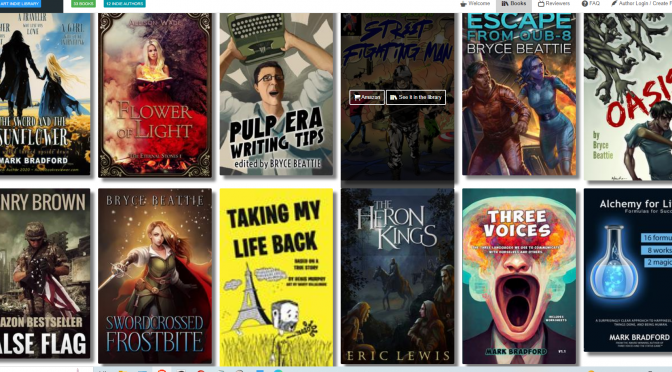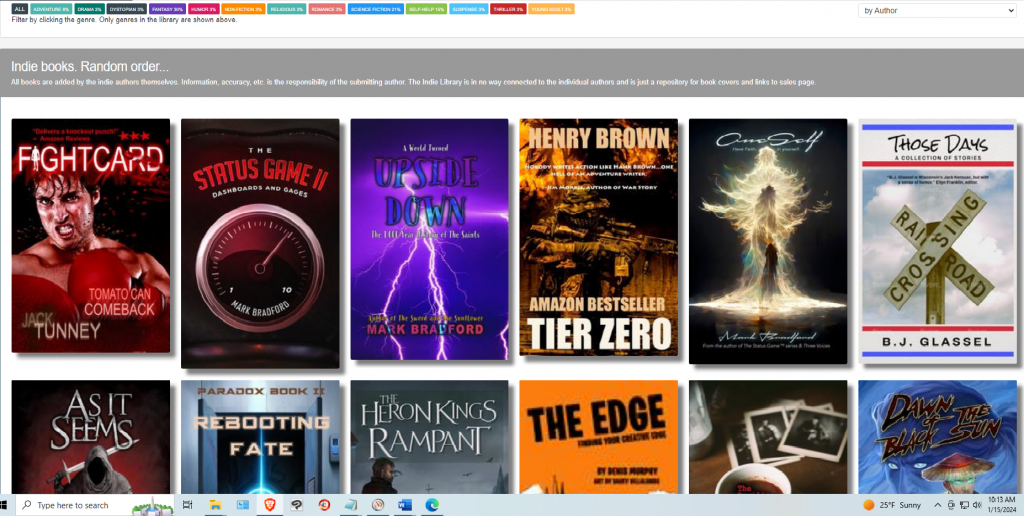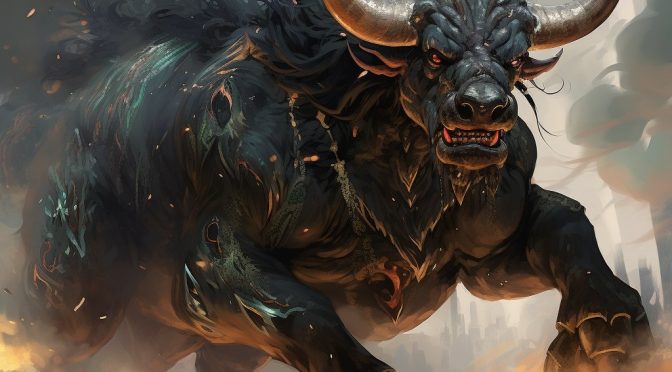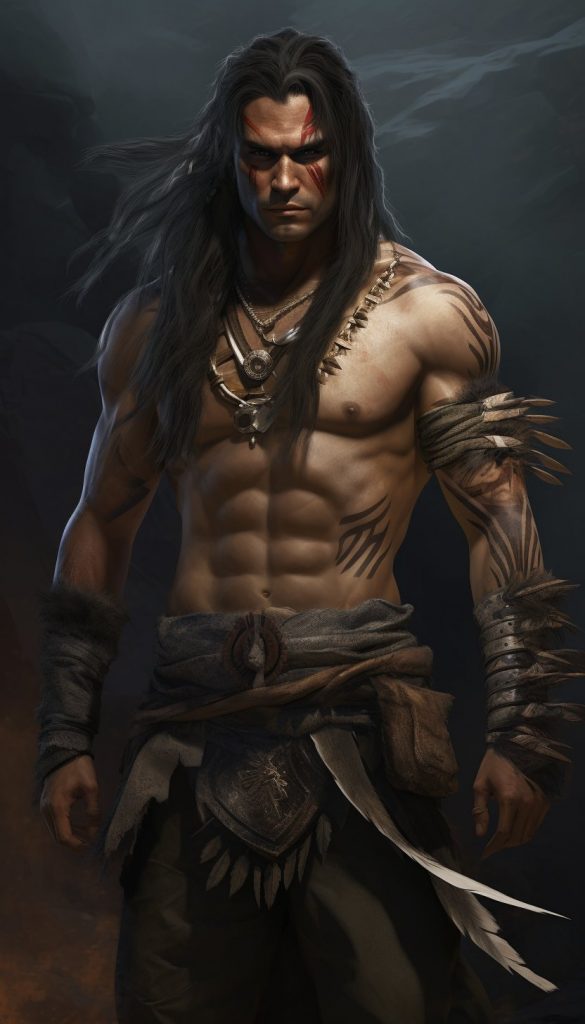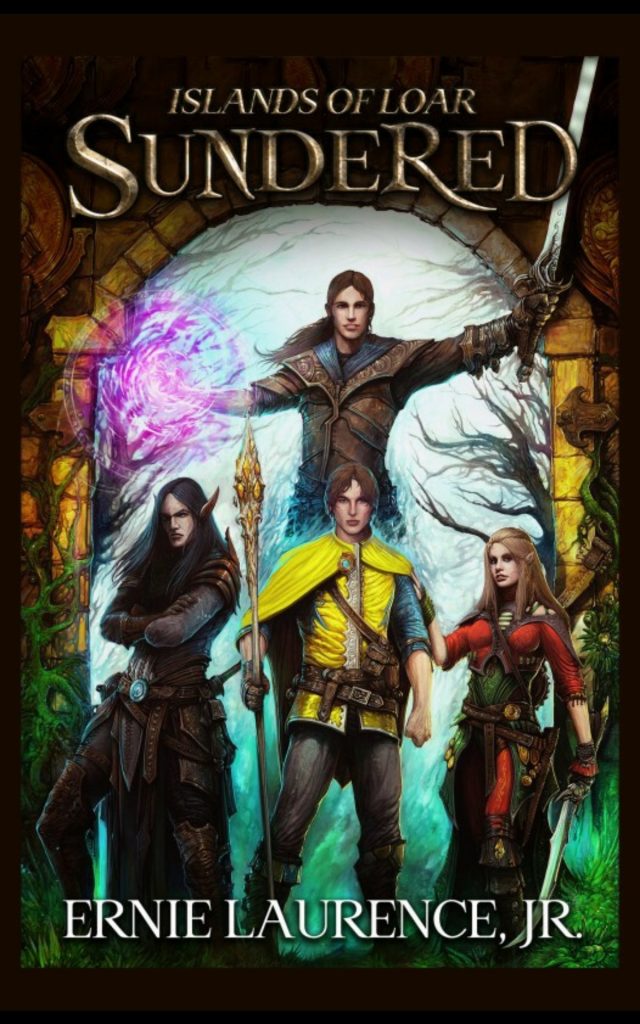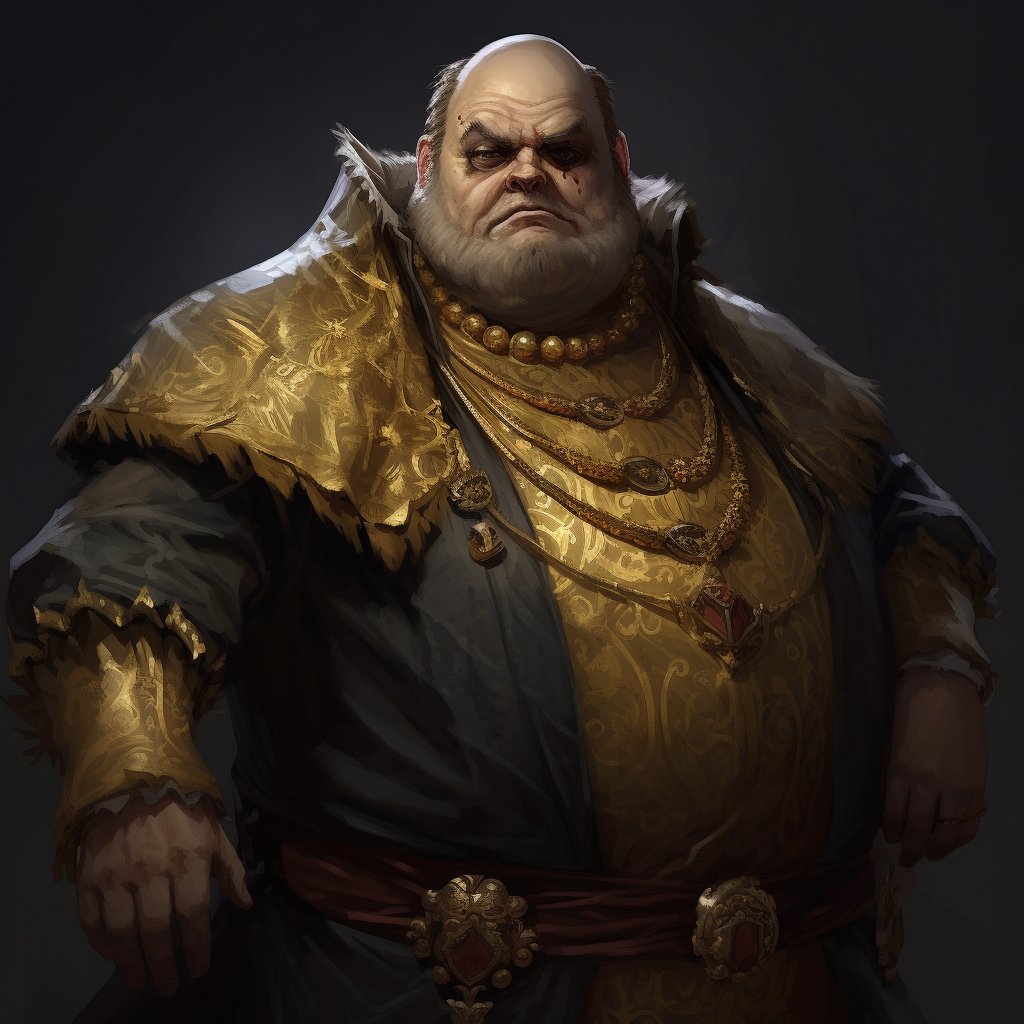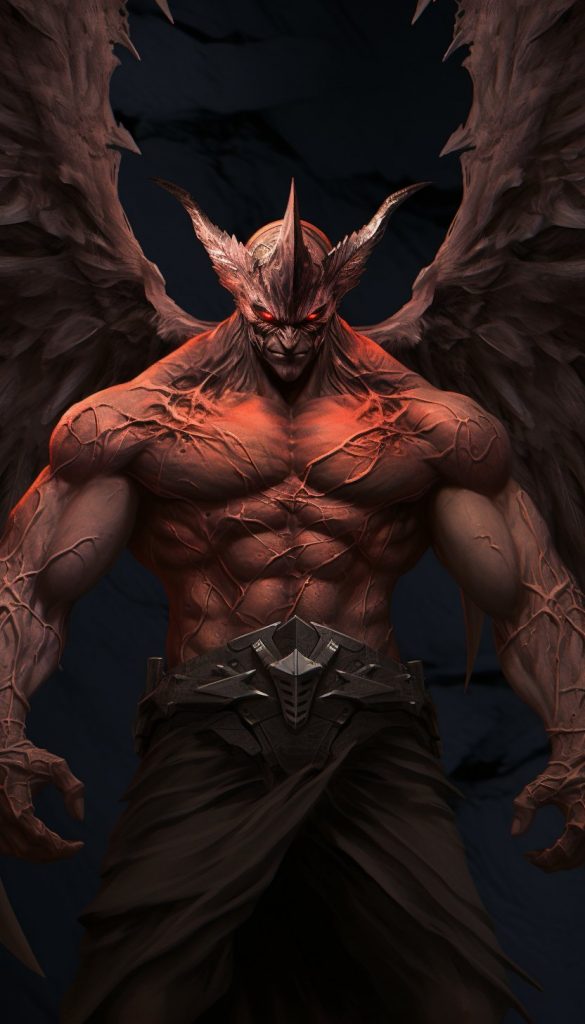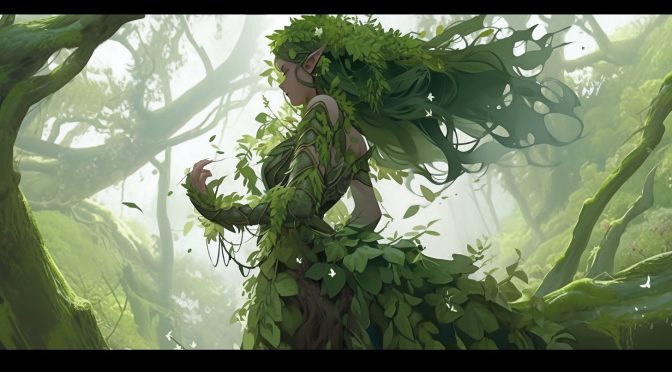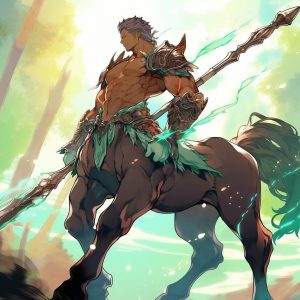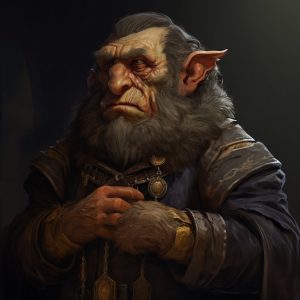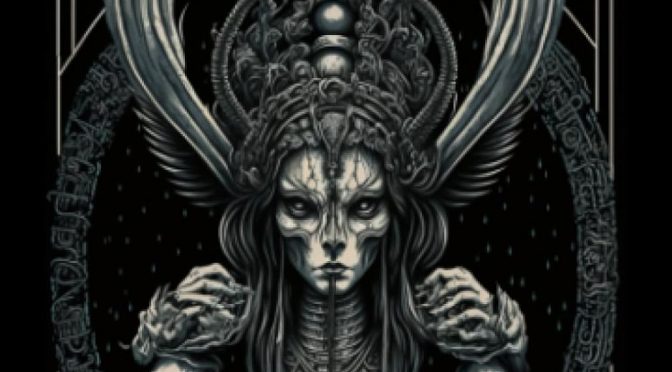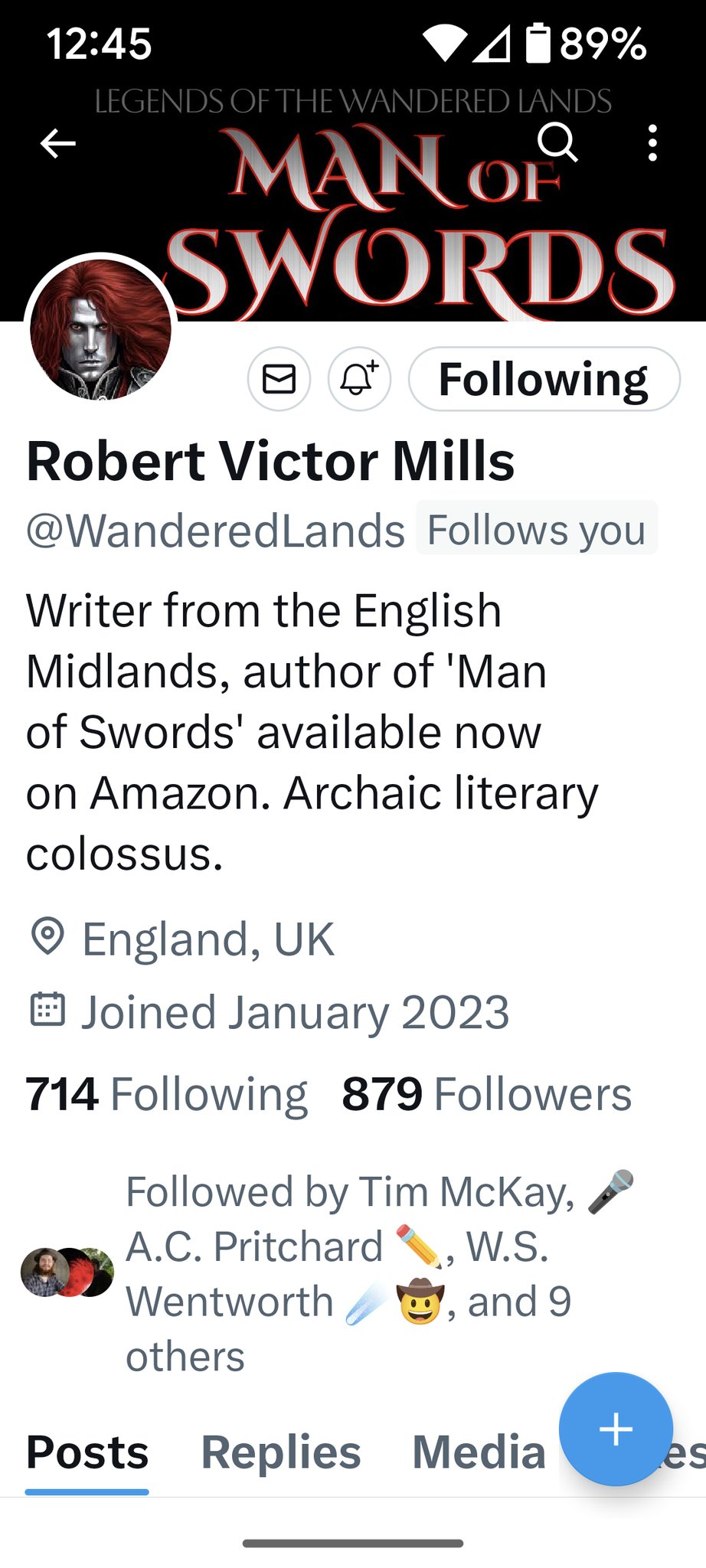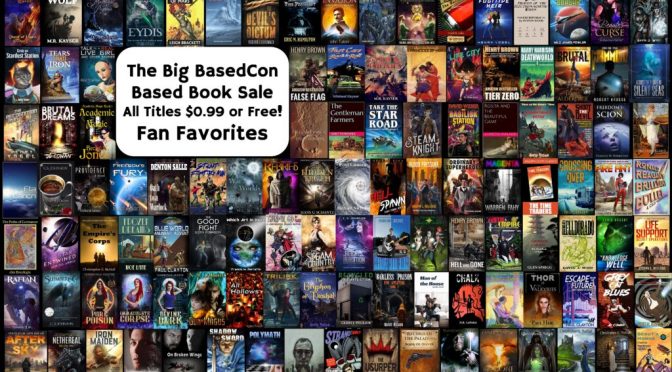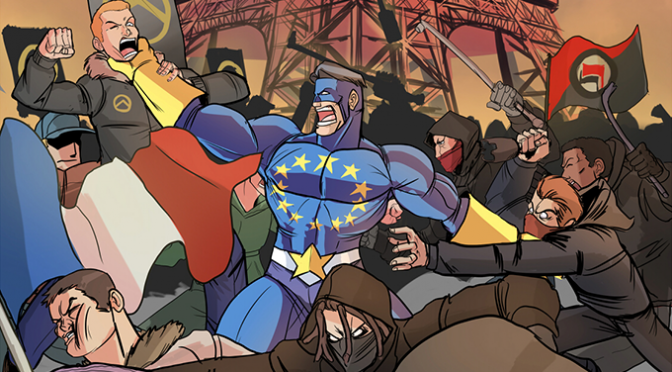
As in the recent review of the author’s latest, this Q & A is brought to you by the INFAMOUS REVIEWER GIO.
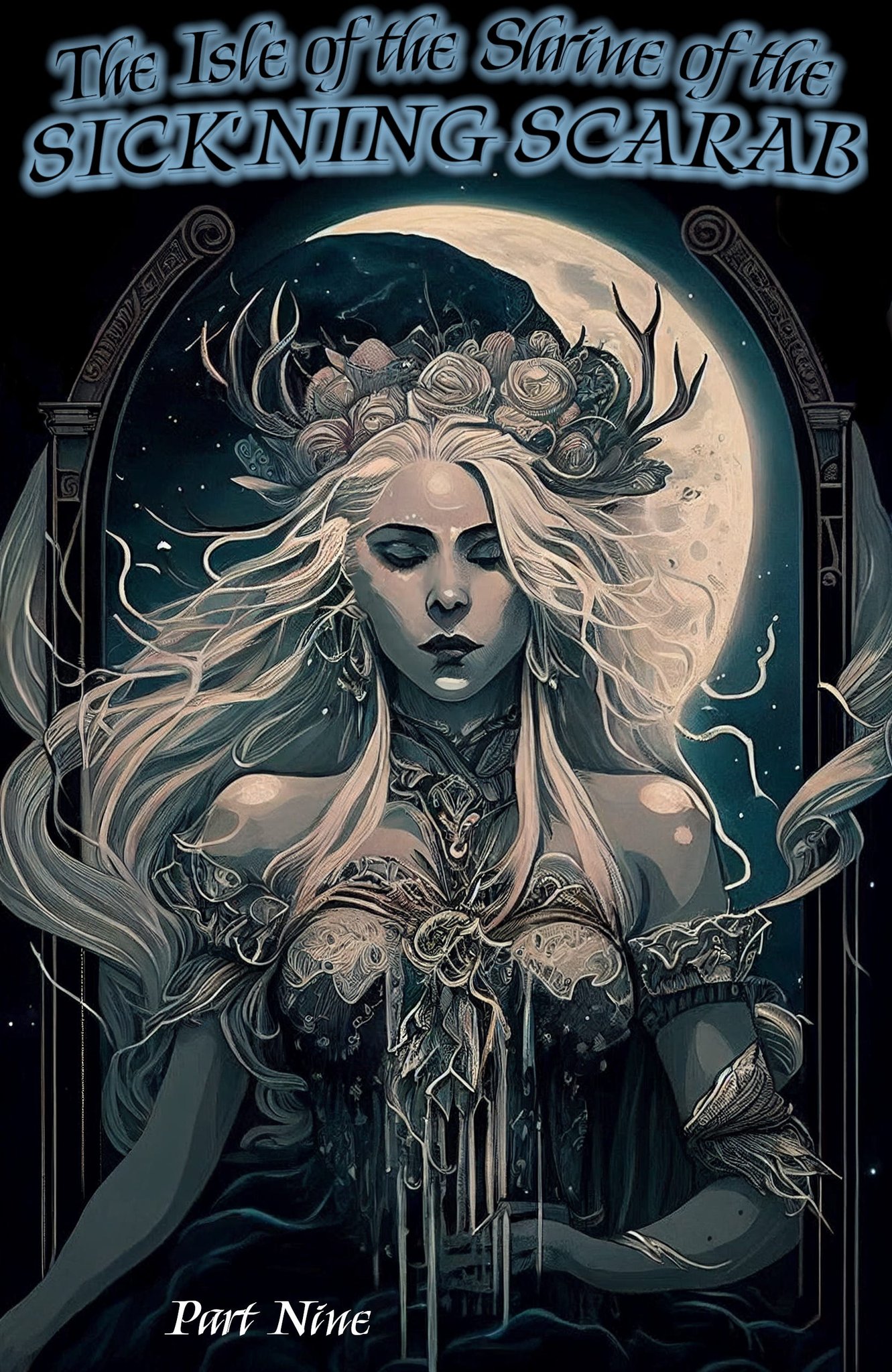
Gio: This being only your second publication, how long have you been writing and what made you decide to publish your works only recently?
RV Mills: Well, on leaving university in ‘94, I decided to have a stab at this writing game. Over the next five years I wrote two fantasy novels, submitting them to publishers and agents. A different business, back then, just before the birth of the internet, when sample chapters had to be printed out and mailed in big brown envelopes. I stuck at it for about five years of silence and polite rejections, but, life forged on; family, a full time job and more college. I don’t recall ever consciously giving up on the dream, though I definitely gave up on the reality. All those papers were thrown into a document box and forgotten about.
Nearly twenty years later, 2017, with both my parents gone and me in the process of selling the old family home, I came across that document box. It was, shall we say, interesting and informative. One experience that a writer can never have, is to read his own work completely cold, with fresh eyes. Reading the contents of that box was as close as one might get, because I’d forgotten almost everything I’d written! Of course, the tale would be wonderful if I could romantically announce that I had rediscovered some lost masterpiece. Oh no, it was all terrible! Just awful! But, with that fresh perspective and an older head, I could see plain as day where all my failings as a writer lay. A very useful experience.
Should you be wondering, I burned those manuscripts in the garden in a steel bucket. The world has no need of such horror!
I guess, that would have been that. However, once again, life happened. The virus came, and lockdowns. Like everyone else I read books, watched movies, listened to music, picked up new hobbies, slow tortured by increasing boredom. It drove me to again pick up the pen. I started scribbling science fiction stories, just for my own amusement, nothing else.
Towards the end of that very peculiar period, three things happened, all seemingly the same week. First, I read an article which essentially argued that many talented writers were being turned away by publishers and agents for the sole reason that they didn’t fit a desired demographic, and that this had been going some years. Second, I caught a livestream by the comic book artist Ethan Van Sciver. There’d been an incident with a movie director that had him really riled. And he persuasively called on his viewers to have a go at creating, something along the lines of: “If you can draw, draw! If you can write, write! We need you!” Thirdly, that same night, I had a dream.
I quite often have vivid dreams. Boy, this was one! An entire story played out in my head, like a movie, of a mighty warrior with hair like flame, and his companion, a poet and bard with a tongue like quicksilver. Together they were rescuing a princess snared by a snake cult. Vicious fights, monsters, gore, glory. No names, no dialogue, just images and allusions, but as real as if I were there, involved. I woke up, it was as if a switch had gone over in my mind. I got up, sat down, started writing. And that, eventually, became the first story of Rhoye and Astropho.
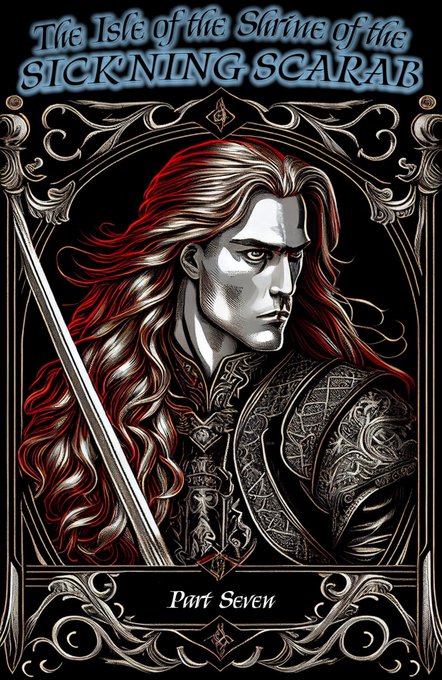
Gio: The first thing that we notice when reading ‘The Isle’ is your prose. How did you come to develop and hone such a brilliant prosaic style?
RV Mills: Well, firstly, thank you for the compliment, that’s incredibly kind.
I suppose the short answer is, a long lifetime of reading. I grew up in the 70s and 80s, youngest of eight children, in quite a traditional working class family. Having five older brothers, there was always a lot of stuff left lying around to read, not all of it of a suitable age rating, either. I adored reading. I would read anything I could get: Bond novels, horror, movie tie-ins, comics, magazines, but I always gravitated to more fantastical stuff, myths and legends. Then, for Christmas 1982, my eldest brother gave me a copy of ‘The Warlock of Firetop Mountain’ by Steve Jackson and Ian Livingstone. That gift pretty much started me down the path I’ve followed since. From reading those fantasy gamebooks I progressed to Tolkien. I remember saving furiously for weeks to buy a paperback edition of ‘Lord of the Rings’ in 1985. And from there to Mervyn Peake, Anne McCaffrey, Robert E. Howard, and so on. Those books also got me started on a decade of Dungeons and Dragons, first as a player and then, while I was at university, as a dungeon master. I long since gave my rulebooks away, but I still have the dice!
Naturally, I suppose, my love for reading channeled me in that direction academically, which led to a degree in English Literature. That opened me to a deal of far older material, such as Homer, Mallory, Chaucer, Shakespeare, and classic novels and poetry. That’s chiefly where my reading interests lie now, in older writings, in heroism and chivalry. I often joke that the most recent book I’ve read is ‘The Return of the King.’
As you can tell, my jokes are seldom ripsnorters!
Gio: Your novella seems to be paying tribute to the greats of pulp narrative such as Robert E. Howard and Lovecraft. How do you prevent modern progressive culture to leak into your work, as we seem to be constantly bombarded with it?
RV Mills: Part of it for me, I think, is modern stuff just doesn’t interest me. I’m engaged, as a reader and now as a storyteller, in older ideas, of nobility, of chivalry, of duty, of sacrifice. And I think Van Sciver and the creators in the Iron Age movement are right, there has to be representation of those older strains of literature and entertainment for those members of the audience that still want and desire them. That’s where I’m at, and, honestly, it’s where I’ve always been. That is what my fictional world of the Wandered Lands represents, I think, a place where a reader can become lost in pure escapism, like Middle Earth, Hyboria, or Lovecraft’s old Arkham. My creations are never going to be for everyone. And I’m fine with that. Plenty of other stellar creators out there doing great, great things to satisfy other tastes.
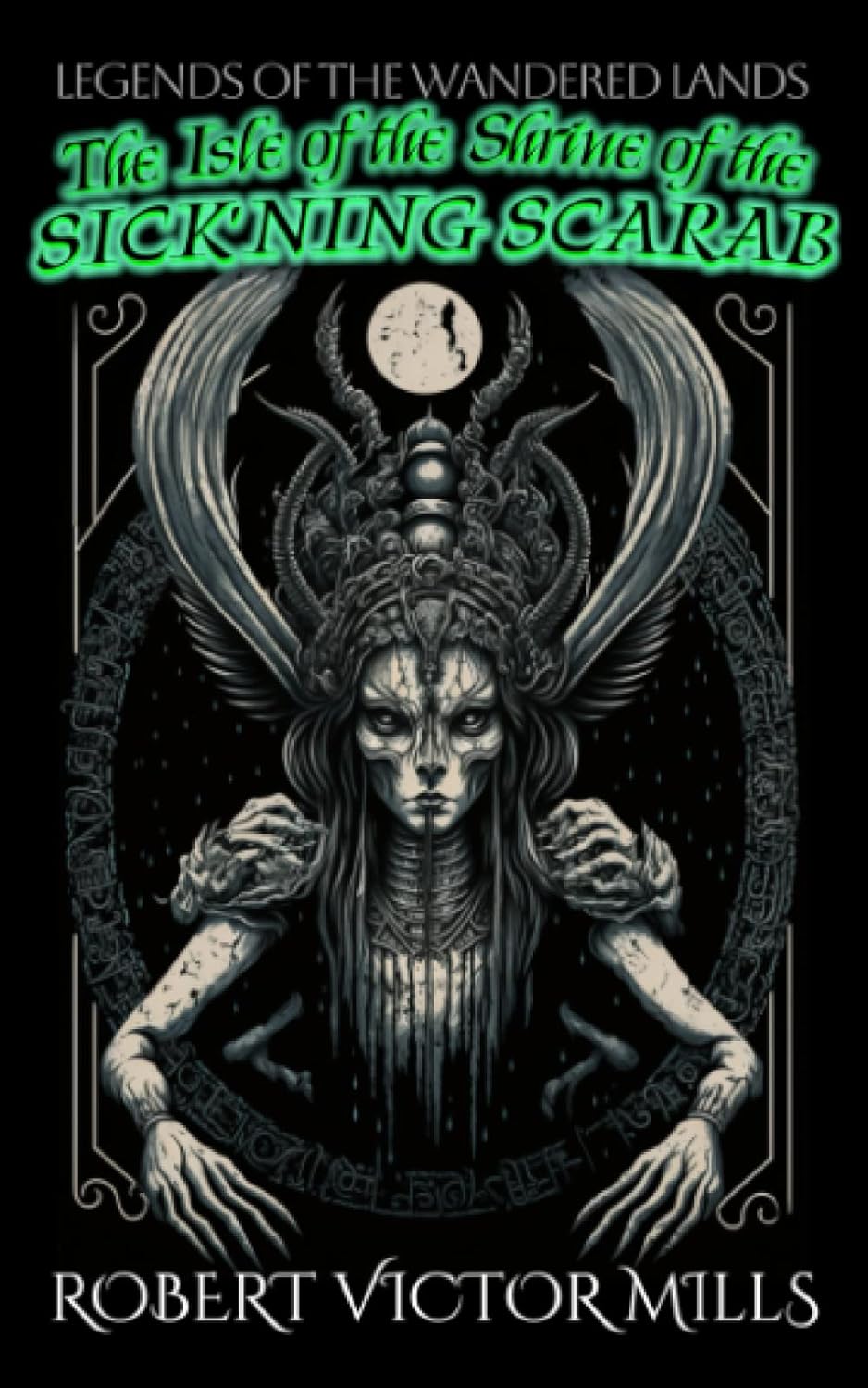
Gio: Rhoye is your MC, however your novel is so rich in characters that he really never steals the spotlight. Was that something you did consciously?
RV Mills: You mentioned Howard. One of the aspects of his Conan stories I really admire is that, in quite a few of them, Conan is almost a secondary character, while the heroine leads the narrative. Valeria in ‘Red Nails’ springs to mind. I like that technique. I think it broadens the scope of the story and grants fresh perspective to events as they unfold. So in ‘The Isle’ we see Rhoye’s standpoint, Astropho’s, and Aona’s. Each offers a unique flavour, I think, which allows the tale room to breathe.
Gio: Speaking of supporting characters, I must admit the crabs were my favorite ones. How did the concept of an island so very much dominated by these crabs come about?
RV Mills:
Another dream, a nightmare, and with a very specific source. I’d been reading Dr. Jordan Peterson’s ‘Twelve Rules for Life’. That opening chapter, the one with the lobsters, really stuck in my mind. That night, I had a dream of two swordsmen dueling to the death on this hellish shore just swarmed over with the most disgusting crustaceans, not just lobsters but crabs and horrid sticky slimy things. So vivid, I just had to weave it into a story! So I got me a cup of tea, sharpened my pencil, and set to work!
As it happened I’d been working on an idea for a pirate story which really had very little direction. And I had another idea for a tale about a lost shrine. Suddenly these three ideas fused as one in my brain, and that was that. I had no real conception of how long it would turn out to be. I tend to just let each story dictate its own length. It came out long! But I’m exceptionally proud of it. I think it’s a very entertaining piece.
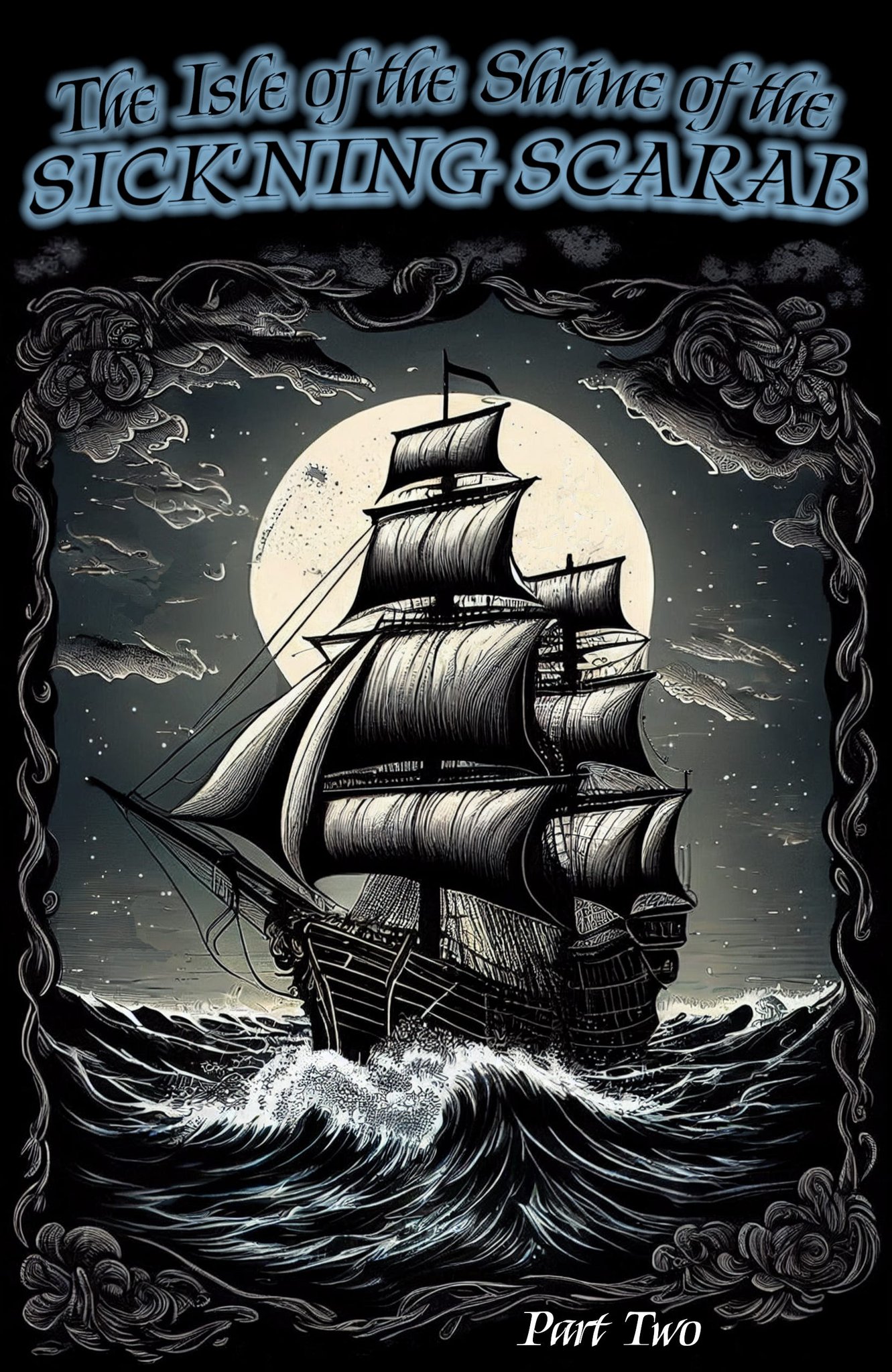
Gio: Can we expect more longer format stories similar to ‘The Isle’?
RV Mills: Yes, I have another finished novella which I’m hoping to put out in February. I’m waiting on artwork for that. It is called ‘The Girl with the Fire in Her Hair.’ It was written before ‘The Isle’ and is a little shorter, but I’ve included a back-up story which is a natural sequel and companion piece.
I’m currently writing the sequel to ‘Man of Swords’, hoping to put that out at the end of summer, which will contain further adventures of Rhoye as a younger man, his wandering through Bruthulia against the backdrop of the war with the Sarkaenid. About halfway complete on that project, as we speak.
Gio: What inspired the title of this novel?
RV Mills: I struggled to decide on the best permutation! I wanted to mention the ‘shrine’, because shrines are mysterious, and the ‘scarab’, because also mysterious, and also ‘sickness’ to add a pinch of peril, but also the ‘isle’ to hint at location. I wrote it all down, read it back, and yes, it is indeed a mouthful. ‘The Isle of the Shrine of the Sick’ning Scarab.’ But I love it. The ‘e’ in Sick’ning was the only edit I could stand to lose!
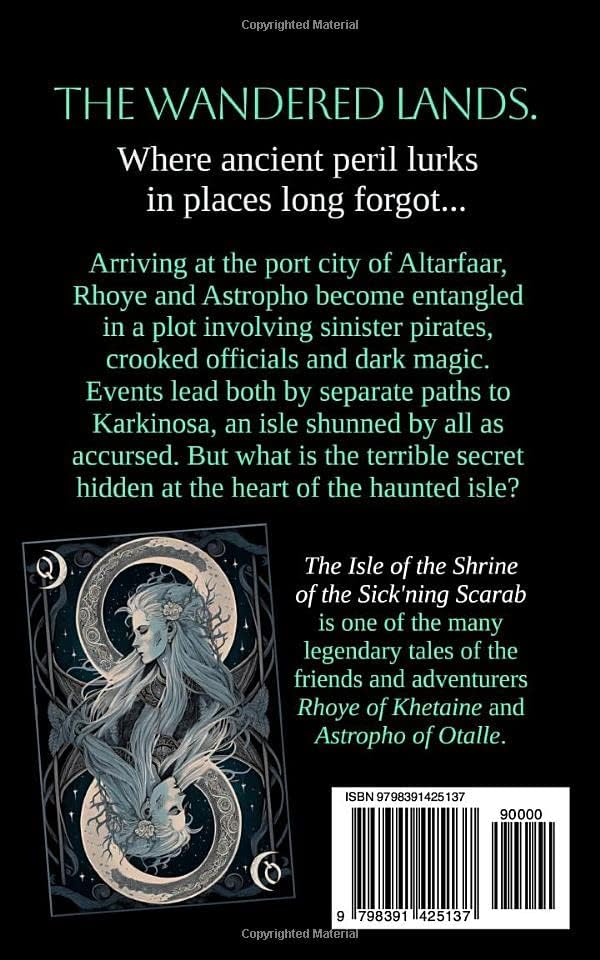
Gio: Any plans for spinoffs? Astropho seems to be a very complete and well defined character who could possibly branch out and have his own adventures.
RV Mills: Astropho will return in ‘The Girl with the Fire in Her Hair.’ I have half a dozen other completed stories featuring the two friends together, I’m just in need of some connective tissue to link them into a narrative that is itself compelling, rather than just throw out a collection of disjointed short stories. But, yes, there’s more to come from Rhoye and Astropho, for sure.
Regarding spin-offs, I have two other characters that I am very endeared to, and have written two long stories with a third in outline. They are two templars of Erishala, Vicatiora and her mentor Kionates of Dalathopos. They are essentially sleuths in a fantasy setting, with Kionates being observant and wise if a tad senile, and Vicatiora being green, yet headstrong and quick. Together they solve very peculiar mysteries which abound in the city of Altamantia, and which usually have a magical bent.
But, that is a good ways off, as yet. Watch this space!
Note from Virtual Pulp: Stay tuned for a follow-up interview of Robert Victor Mills by Gio!

